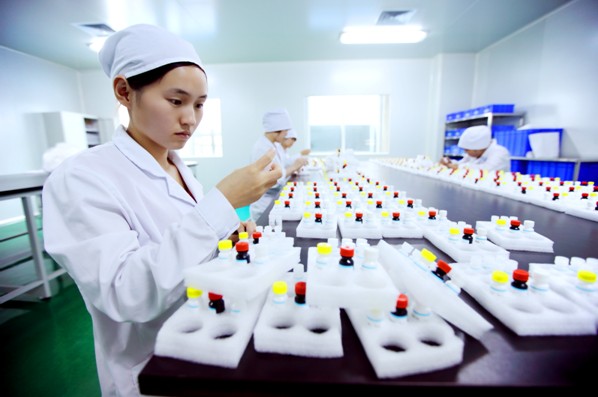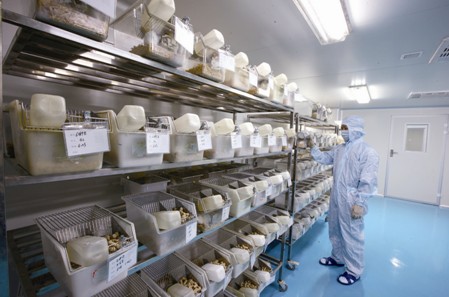Kwinbon focuses on food safety
By Jia Tingting| chinadaily.com.cn|Updated: May 5, 2014
Guizhou Kwinbon Food Safety Science and Technology Co in the Huaxi economic development zone of Guiyang, Southwest China's Guizhou province, is preparing baskets of safety food for local people.
 |
|
Food detection(Photo/China Daily Guizhou Office) |
"We send baskets of food after detection to convenience stores, like 7-11, so that our customers can cook with safe food every day," said He Fangyang, president of Guizhou Kwinbon Biotechnology Co.
Beijing Kwinbon Biotechnology Co testing lab, a company that specializes in residue detection for food safety, plans to develop its international science and technology industrial park for food detection equipment and biological reagents in Guiyang, Southwest China’s Guizhou province.
"We are happy to see more and more people are willing to buy safe food. They pay 15 percent more, but they are leading a healthier life," said Xie Tibo, project manager of Guizhou Kwinbon Food Safety Science and Technology Co.
Guizhou Kwinbon, one of Guizhou's emerging industries, saw sales revenue hit 40 million yuan ($250.2 million) shortly after its settlement in 2012.
 |
| Animal immune detection(Photo/China Daily Guizhou Office) |
"We have reason to believe that our output value will hit 1 billion yuan soon." He Fangyang sees a bright future for the safety food industry in Guizhou.
He Fangyang, born in Meitan prefecture, Guizhou province, went to Beijing in 1997 to attend China Agricultural University.
"I came back with a mission to make people healthier. So I chose my hometown, which is growing rapidly, to make a difference," said He Fangyang.
"I brought nothing but ideas," said He Fangyang. The economic development zone provided a 5,230 square meter work place for his company, and a research center occupying 20,000 square meters will be built this year.
"Guizhou is going to have a new calling card for food Safety," said He Fangyang, filled with hope.
Now, Guizhou Kwinbon is planning to develop an O2O (online to offline) business to sell safe food in 10 provinces. Roughly 1,000 sections will be built by 2017.




